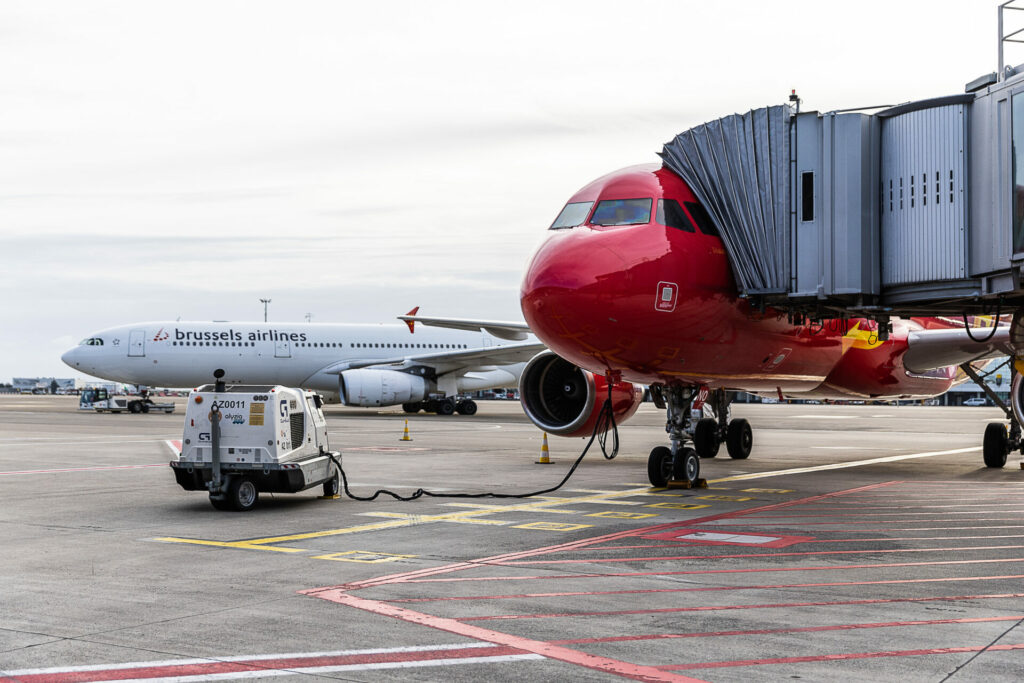All airlines departing from Belgium's largest airport next year will receive a premium to use the so-called sustainable aviation fuel (SAF), which is three times more expensive than traditional fuel.
Brussels Airport this week announced that the Federal Government is covering part of the difference (up to 80%) between "sustainable" paraffin and traditional fuel for airlines (passenger or cargo, and both long- and short-haul) that use the runways in Zaventem.
The fuel is derived from used oils, animal waste, sugars, and other products. It can be used by mixing it with traditional paraffin (in varying proportions, up to 50%).
With emissions reductions reported in the region of 65% compared to conventional aviation fuel, as well as the fact that it requires no infrastructure upgrades, SAF has been hailed the answer to ambitions to achieve climate-neutral flying by 2050 – especially as electric and hydrogen technologies for aircraft are not yet ready for use.
Cost limiting roll-out
At the start of this year, Brussels Airport became the first in Belgium to be fully supplied with SAF. But so far the usage of this fuel stands at just 0.2% of global fuel consumption – far too small to make a meaningful difference to emissions. This is largely because it is considerably more expensive.
As a result, Belgium's Federal Government is freeing up €2 million as part of a unique support mechanism so that airlines operating at Brussels Airport in 2024 can receive a one-off premium to use this more "sustainable" fuel. The first order (for the first quarter) must be in by 31 January, and airlines can receive a maximum of €200,000.
"Just as the aviation sector must use every means at its disposal to reduce its ecological footprint, we must, in Belgium and across Europe, use all the levers available to accelerate this movement," said Georges Gilkinet, Minister of Mobility.
"Thanks to this unique support mechanism, next year we will encourage companies to opt for SAF rather than fossil fuel: this is one concrete way, among others, of testing this means of reducing CO2 emissions in the aviation sector on a large scale," he added.
While the aim of the project is clear, there are concerns among airlines, notably that SAF can not be easily found on the market. Concerns have also been raised about the fact that the aid is only offered to Brussels Airport, excluding airlines at Belgium's other airports.

